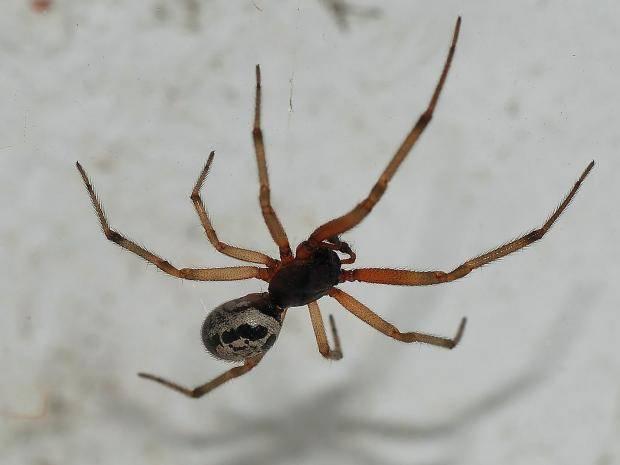False widow spiders set to invade British homes this winter
The species is believed to have arrived in England as a stowaway critter on cargo ships in the late 1800s

False widow spiders are set to invade British homes this winter as they search for warmth, experts are warning.
With temperatures diving as low as -7C across the UK this weekend, some Britons have already started spotting the eight-legged critters in their homes, taking to social media to tweet photos of the arachnids.
“Outch. I got bitten by a darn false widow spider in the night. So painful,” one Twitter user wrote earlier this week.
The venomous insect, which has been in Britain for the last 130 years, is a cousin of the deadly black widow spider, but unlike its close relative, its bites are not fatal to humans.
There have been isolated cases of people needing hospital treatment after being bitten, but generally, symptoms are typically limited to pain around the bite and swelling. Most serious cases are often due to an allergic reaction to the spider’s venom.
The false widow, or steatoda nobilis, is native to Madiera and the Canary Islands. It is believed it may have arrived in England in the late 1800s as a stowaway critter on cargo ships.
It is one of roughly 670 different species of spider present in Britain, according to the British Arachnological Society (BAS).
The spider is widespread along the south coast of England, but has become increasingly common as far north as Norfolk and south Wales, the BAS says.
The organisation has stressed that people should not be alarmed by the arrival of the false widow – and that while it is venomous, serious bite injuries are rare.
“The fact that harm caused by them is very rare should tell you something about how dangerous they really are,” the organisation says on its website, though it advises against trying to handle one of the critters.
To prevent the insects from making your home their own this winter, pest control company Rentokil recommends ensuring your home is not a haven for woodlice, millipedes or centipedes to avoid spiders following their prey indoors, as well as filling in gaps around pipework and entryways and vacuuming regularly to avoid a buildup of cobwebs around and outside the house.
Subscribe to Independent Premium to bookmark this article
Want to bookmark your favourite articles and stories to read or reference later? Start your Independent Premium subscription today.

Join our commenting forum
Join thought-provoking conversations, follow other Independent readers and see their replies